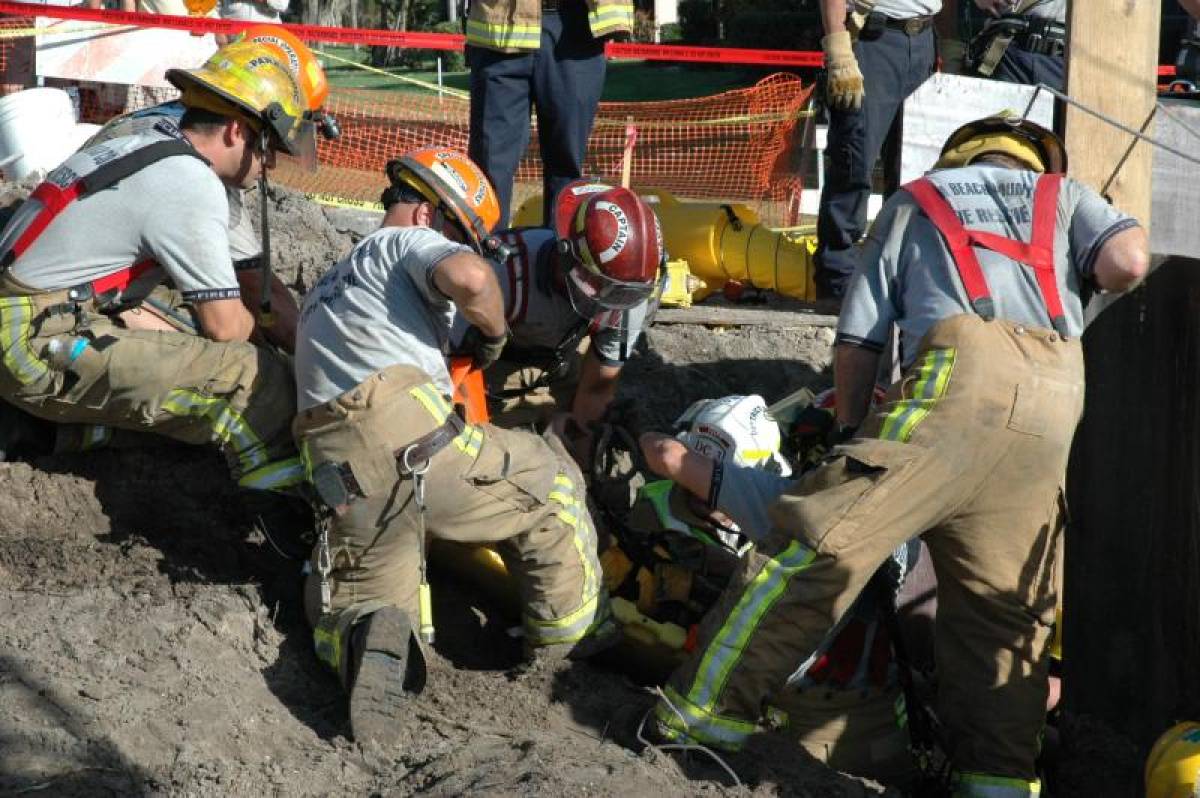Personal Injury Lawyers Role Amid More Construction Injuries

Firefighters and Special Operations teams work on extraction of buried construction worker. Photo: Mark Carr/Wikimedia.
Every year, thousands of injuries and fatalities occur at construction sites. According to the Occupational Safety and Health Administration (OSHA), 20% of worker fatalities in private industry were in construction, with one in ten construction site workers injured each year.
Meanwhile, the US Bureau of Labor Statistics (BLS) reports that roughly 150,000 construction site accident injuries occur each year on average.
There are many reasons for construction site injuries. From faulty equipment to ignoring safety regulations, injuries happen with devastating consequences—financially, physically, and mentally. Fatalities are worse.
As you might expect, when workplace injuries happen, there will be a lot of negotiations, claim settlements, and perhaps lawsuits involved. This is where your attorney (more specifically, a personal injury lawyer) comes in to help you navigate all of those legal hoops.
The job and goal of a personal injury lawyer is to help you secure the maximum compensation possible, or at the very least a fair compensation. But that is not the only role a personal injury lawyer will play in the event of an accident or injury at work.
Role of Personal Injury Lawyers in Workplace Injuries
Some of the vital roles and duties of a personal injury lawyer that are quite beneficial in the event of a workplace injury include:
1. Dealing with complex accident laws
Most cities have a complicated set of accident and personal injury laws that might be difficult to navigate on your own.
For example, in Texas, construction laws are somewhat complex because of the Tort Reform Act of 2003, which limits the amount of money insurance companies can pay when victims file claims.
Construction accidents in Texas are divided into two types: injuries covered by workers' compensation insurance and damages that are not.
Your lawyer will help you know which one applies to your case, the kind of strategies to be employed, and how you can establish your employer's liability.
2. Filing a workers' compensation claim
In case of a dispute between an injured worker and the employer or insurance carrier over entitlement to benefits, the worker may have to file a workers' compensation claim, which can be a complex process. For example, lawmakers in Texas passed the Texas Workers' Compensation Act in 1933. The Texas Department of Insurance regulates it.
To summarize the law and put it simply, it contains provisions that protect companies and employers by having workers' compensation insurance. That ensures employers are covered and protected from employees’ lawsuits.
The insurance covers any injuries sustained by workers on the job. Medical expenses and wage loss benefits are included in this cover.
However, in the majority of cases, the compensation for a worker who believes they have sustained a compensable occupational injury is hardly reasonable.
Hiring an attorney will be your best option in such cases. They will file your claim within the statute of limitations, which is 30 days, and fight for fair compensation on your behalf.
3. Negotiating with the insurance company
When negotiating with the insurance company for compensation, certain laws must be followed. Texas law, for example, states that your employer has eight days to inform the insurance company about your accident.
The company will then consider the claim to establish its validity. They might either provide an admission of liability or deny the claim altogether.
If the claim is denied, it is called a notice of contest. Some of the reasons for denial are disputes over the responsibility, injury not covered in the insurance claim, and premiums not being paid on time.
If your claim is denied for any reason, your personal injury lawyer will help you fight for it. They will gather the required documents and proceed methodically, keeping in mind the nitty-gritty of the case.
5. Filing a lawsuit
There will also be cases when your employer does not have workers' compensation insurance. In that case, you can file a personal injury claim with the help of your lawyer. If a third party was involved in causing the injury, you could file a lawsuit against them too.
However, to win the case, you should prove the negligence of the third party. Your attorney will do that by proving that your employer owed you a "duty of care," and that the injury occurred because it was breached.
A personal injury lawyer will provide vital legal expertise to ensure you receive adequate compensation in the event of an occupational injury case.
Those are just some of the ways a personal injury lawyer can help you out, which makes it worthwhile to contact and hire them in the event of a workplace injury.




















